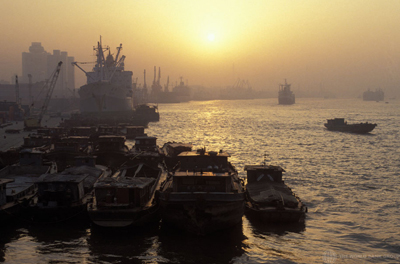Improving Infrastructure and Special Economic Zones (SEZs) in Africa

Summary
The governments of Africa want to improve the investment climate and reduce poverty in their countries through modernization and industrialization. Learning from the Asian experience, many governments are developing Special Economic Zones (SEZs) to achieve these goals. Chinese knowledge, experience, and investment have been invaluable in developing these zones. However, most African countries still lack the infrastructure to make such SEZs effective and competitive on international markets. To help address the problem, the World Bank facilitated a conference and study tour for high-ranking African government officials. These leaders visited China to meet with Chinese and international experts and learn global best practices for infrastructure development, especially those pertaining to SEZs. Organizers also hoped the exchange would improve the policy, institutional, and financial frameworks used to support infrastructure development.
“African countries want to learn about China’s development experience, particularly about overcoming poverty and sustaining economic growth,” World Bank President Robert Zoellick said at the start of the conference. “[The] initiative [will] expand Chinese investment in Africa beyond the minerals, energy, and infrastructure sectors into activities that offer greater opportunities for creating jobs and transferring know-how.”
The exchange provided African participants with concrete lessons on how to undertake innovative reforms to infrastructure development and SEZs in their respective countries. The conference, which was the third annual high-level event between the partners, also promoted continuing China-Africa cooperation. The African delegates learned how to incorporate, build on, and improve some of the strategies that China had used to achieve faster development and poverty reduction through rapid industrialization. They also understood the importance of political commitment for transforming ideas into actual reforms and learned about the critical importance of infrastructure development for growth and poverty alleviation.
Beneficiaries / Participants
Developing reliable and functional infrastructure to support the manufacturing sector and improve productivity and competitiveness in international markets is of utmost importance for Africa’s development. However, many African governments face challenges formulating and implementing effective policies to build, strengthen, and manage the sectors. A number of African countries have looked to Special Economic Zones (SEZs) to enhance manufacturing and create jobs. Most African SEZs have not been as successful as those in China, however, where SEZs played a major role in attracting foreign direct investment (FDI) and achieving export-led growth.
So, with the help of the World Bank, African governments have set out to learn from China’s SEZ experience in a series of knowledge exchanges over four years. The first several focused on specific knowledge gaps in effective zone planning and design, sustainable zone management, design and implementation of incentive regimes, increasing trade, improving the functioning of customs, skills development, and public-private partnerships. The African countries also wanted to learn how to improve the policy, institutional, and financial frameworks that support infrastructure development, including how to divide responsibilities between the central and local authorities and between public and private actors. The result was this knowledge exchange between the partners. Its focus on infrastructure contributes significantly to overcoming existing challenges.
Moving forward
South-South learning between China and Africa has remained an ongoing, vital activity, as this third High-Level Exchange in China on agricultural development attests. The close coordination between the World Bank’s East Asia and Pacific and Africa regions and the World Bank Institute ensures that the knowledge exchange remains dynamic. The discussions with Chinese government officials have advanced the joint learning on the topic of infrastructure development and China's engagement in Africa.
As this event coincided with the celebration of the thirtieth anniversary of the World Bank's engagement with China, the success of the program further solidified the Bank's multifaceted relationship with the Government of China.

 China
China Colombia
Colombia Denmark
Denmark India
India Indonesia
Indonesia Mexico
Mexico Russian Federation
Russian Federation Spain
Spain United Kingdom
United Kingdom